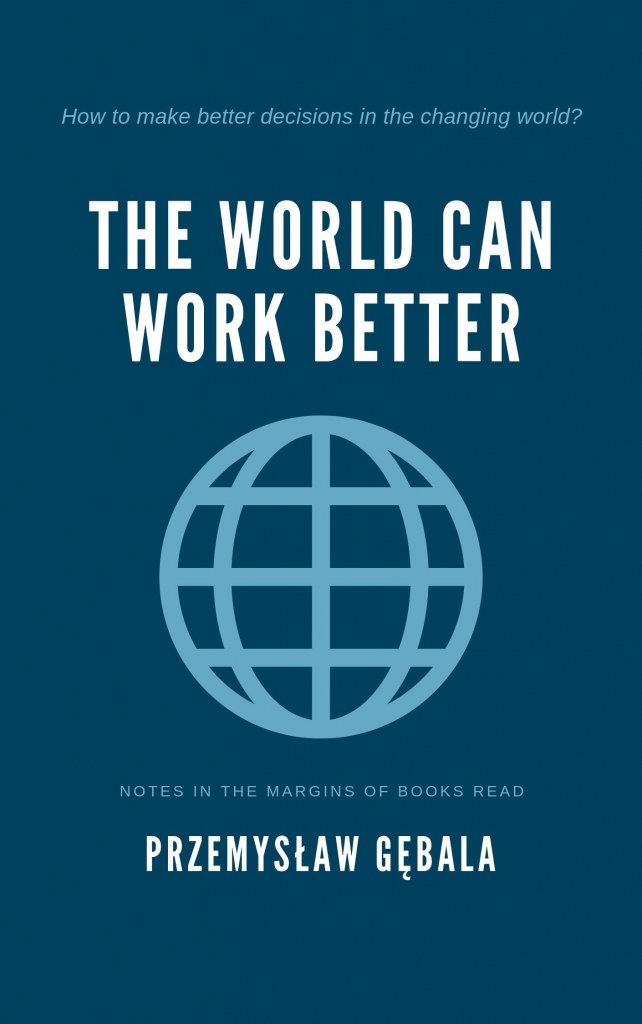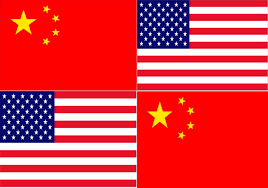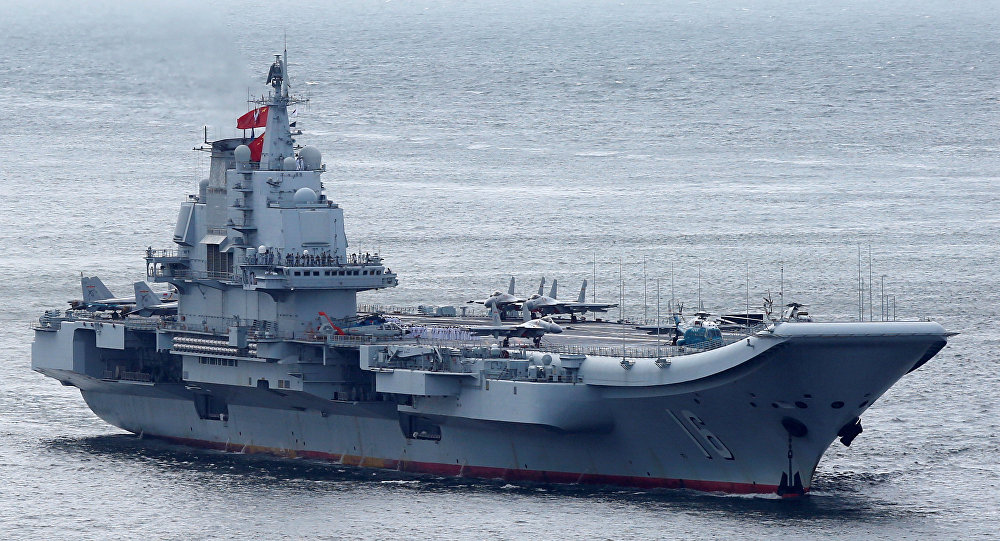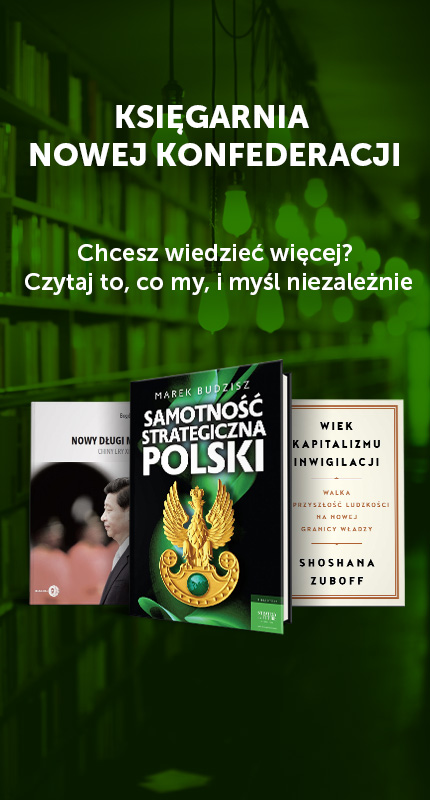
Nie masz czasu na zapoznanie się z całością artykułu?
Wystarczy, że klikniesz ikonę „oznacz artykuł do przeczytania później”. Wszystkie zapisane publikacje znajdziesz w profilu czytelnikaThe world can work better

ABOUT THE ESSAY AND THE AUTHOR
The world is changing at an unimaginable rate. Old theories, labels and names are becoming less and less relevant to the reality after the digital revolution. The shape of societies, states, politics and business is shifting. How to move around this world? How to describe it? How to make decisions in it? How to reconcile conflicting visions of the world and man? What is the connection between the concept of Nassim Taleb’s antifragility, contemporary behaviorism represented by Jonathan Haidt, the theory of probability, the theory of complexity and theory of constraints? Przemysław Gębala, a theoretical physicist by education, entrepreneur, President of the Management Board of Edica sp. z o.o., former city councillor of Poznań and publisher of the legendary magazine of conservatives and liberals “Stańczyk”, tried to answer all these questions in his essay.
According to the maxim “there is nothing more practical than a good theory”, Przemysław Gębala takes us on a journey using very advanced and little-known cognitive tools in Poland, trying to combine them into one harmonious whole. His essay is an extremely ambitious attempt to respond to the most important tribulations of the contemporary world.
BARTŁOMIEJ RADZIEJEWSKI, director of “Nowa Konfederacja”
Przemysław Gębala tries to describe and explain the current social, political, economic and technological transformations using several different theories in order to achieve a relatively coherent picture of contemporary reality and help to understand it properly, which, in turn, will allow us to better understand and act in it. This is undoubtedly an ambitious and intellectually risky exercise. The risk has paid off for the author, and the reader will not regret the effort put into reading if he or she gets through the difficult matter of the text.
TOMASZ GABIŚ, publicist, thinker
In their book “The Evolution of Physics – The Growth of Ideas from Early Concepts to Relativity and Quanta”, published in 1938, Einstein and Infeld (two refugees from Europe, which will later be embraced by the flames of the greatest fire the world has ever known) presented the challenge they were facing in this way: “Here is no systematic course in elementary physical facts and theories. Our intention is to outline the efforts of the human mind to find a connection between the world of ideas and the world of phenomena. We have tried to show the active forces which compel science to invent ideas corresponding to the reality of our world”. The task that Gębala set for himself is of no lesser calibre – to present in an understandable form the evolution of our thinking and understanding of man, society and the world, and their complex relationships. The success of this discourse, based on the broad erudition of the author, is also due to his activities and direct knowledge of many of the areas necessary for understanding today’s world – from the area of interpersonal and social activities to economic, technological and political phenomena.
This (perhaps not the simplest) text is a perfect introduction and guide for anyone who tries to get to know and understand not only the main currents of contemporary understanding of the world’s operation, but also its basic causes.
Get to grips with this text and you will see that by ending it, the world will become much more readable!
I highly recommend!
dr ALEX KLARMAN, co-author of the Theory of Constraints
Zobacz
The idea of “Solidarity” has been killed in Poland after 1989. Law and Justice fills this space only rhetorically
The tragedy of Poland is that it had to conform to the demands of the international Western community. It had to become aggressively capitalist and corporatist and it could not assert its independence. Jarema Piekutowski interviews Maurice Glasman
Khanna: Just because I'm a geopolitician by education, does not mean I'm an ideologue. Conectivity today is a battlefield for influence
Is Parag Khanna the second Fukuyama? Will we see a brutal race for the greatest possible connectedness? Or will conectivity bring peace, reduce the number of classic warfare? What will be the role of the West in this competition, and how much will the Belt and Road initiatives mean? Will nation-states fade away in favor of tribalism?
A Tale of Two Monsters and Four Elements: Variations of Carl Schmitt and the current global crisis
We have a class of scientific technocrats directing the work of a class of politicians without honour, who utterly subordinate everyone else. Only a spiritual revolution will save us now
India is, and will be a non-aligned power in the New Cold War
India is a non-aligned power; this move not only protects its own varied relations (as seen with India-Russia ties and even India-China bilateral) but also allows it to provide guidance and support to smaller economies in Asia and the Indo-Pacific
The Sino-Russian relationship should not be seen as an alliance of revisionist powers
Chinese do not feel comfortable with the seemingly endless “endism” produced by Western intellectual elites, be it Fukuyamanian “end of history” at the end of the Cold War, or the recent variant of the “end” of the so-called liberal international order (LIO)
























